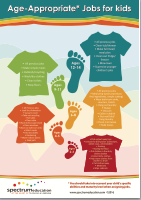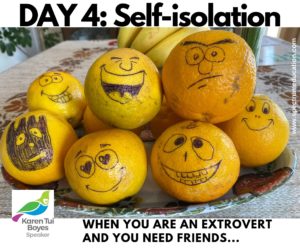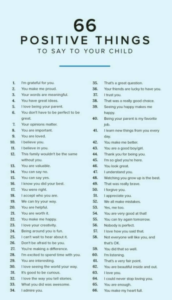Parenting CoronaKids
Tips and ideas to make the next few weeks work…
First and foremost, if your children are home from school you are not expected to be the Teacher. You are the Parent. It is important to ensure you are clear on your role. If Teachers have set work, encourage your child to complete it. If a Teacher is offering online classes encourage your child to join in and participate. For many of them this will feel weird and strange and some will love it. If it gets all too hard on any given day, allow them to stop, come back to it at a later stage, or simply treat the rest of the day like the school holidays.
Here are some ideas that might help navigate this tricky time…
Set up or Maintain Routines
This is really important, even if your child has no school work to do. Humans have a need for certainty, knowing what is going to happen. In these tricky times that can be a challenge. Have or create a morning routine that works for all of you. Breakfast is the best meal of the day for the learning brain, so make a family occasion out of it. The more you can keep every day the same, the more settled your child is likely to be.
As after school activities are cancelled, make your own afternoon routines. Maybe story reading time, a board game, movie time, jumping on the trampoline, dance party, make a meal together and so on.
Continue or create a special bedtime routine. You may even find you have a little more time to devote to this and it becomes a special ritual that you continue for years to come.
Eat healthy meals
Your family’s immune system will be boosted with more fresh fruit and vegetables. Ensure your children are drinking plenty of fresh water and are eating healthy snacks between meals. The fridge can be a huge temptation (for all of us) when we are at home. Create meal times and snack times like at work or school to minimise the constant grazing. A reminder that often when children are hungry, they are really thirsty.
Take exercise breaks
Inspired by Lauren Parsons and her ‘Snack on Exercise’ programme take breaks for some quick exercise. In my office we have a phone alarm set for 10.30am and 2.30pm. When it goes off, we play loud music and have a 1-2 minute dance party. We then return to work like nothing happened! It helps to keep our energy high and maintain our focus longer. Try it and see.
 Encourage children to help around the home
Encourage children to help around the home
Now is a great time for teaching your children how to do the age appropriate jobs and ensure they are done to your standard. There is a difference between sweeping and moving dirt from one side to the other or removing the dirt. You can download this chart here.
Limit the COVID 19 social media and TV news announcements
Neuroscientists have found we have mirror neurons in the brain that cause us to mirror the emotions and actions of those around us. As the numbers of COVID 19 cases rise, so do our anxiety levels and our children’s. They will not only pick it up from the media, they will definitely catch it from you. Limit the coverage for you and them to 10 minutes a day.
Find the humour and share it…
It might not seem like it now, however there will be heaps of funny times to remember. Create a collection jar and write the funny stories on note paper and place in the jar. Share the humour online if you wish. While you are laughing, you cannot experience fear or anxiety.
Allow and Acknowledge Emotions – yours and theirs!
When our regular ways of being are not accessible it can be an emotional ride. It might start out as an exciting adventure and then tip into a dip of despair. You might find the five stages of grief show up in the next few weeks or in one day!
- Shock & Denial – most of us have started here – not really believing this is happening and thinking we will wake up tomorrow and it’s all over.
- Pain & Guilt – as the shock wears off it is often replaced with the pain of understanding what you can’t do, people you can’t see in person, opportunities that are lost. Life feels scary and chaotic.
- Anger & Bargaining – bottled up emotion can be released at this stage. Children might tell you that you are the worst parent in the world, or scream it isn’t fair. They might try to convince you that it OK for them to go play at the park, because others are doing it. Acknowledge the anger, frustration and fear at this stage and remind yourself it is all part of the journey.
- Loneliness – how each person deals with being separated from society will vary, especially depending on how extrovert or introvert they are. Introverts are likely to love staying away from the busy crowds and loud noises while extroverts will find it harder to be away from the energy and buzz of other people. Connecting via the internet might be an option. In my first six days of self-isolation I have held a virtual happy hour and an online games night with my friends. I’m sure in the next weeks I will host a quiz night and perhaps even an online dance party.
- Acceptance and Hope – this will be when you get into a pattern, a way of being that suits your family and you will be able to see a way forward.
One of my mentors, Robin Sharma, says; “Change is hard at first, messy in the middle and gorgeous at the end.” Acknowledge the emotions, allow them and accept them.
Use Positive Language
Avoid using emotive language such as crisis, tough and emergency. Instead talk about tricky or interesting times. Your children are watching you for cues on how an adult responds to challenging situations. Here is a list of 66 positive things you can say to your child.
Enjoy your children
Have fun while you have your children at home. So many parents say; “They grow up so fast.” Now you have the opportunity to be with them. Make blanket forts, go outside in your front or back yard and listen to the birds, have a snowball fight with rolled up socks. Play games together. Learn new skills such as playing knuckle bones, knitting, gardening, movie making on your phone, making a bed, the list is endless.
Make time for your own mental health
Children can be relentless and you need to look after yourself. Maybe you get up slightly earlier than they do and have some quality time to yourself. Find time for yourself in what ever way works for you; a bubble bath, reading a book, yoga practice, exercise. Keeping yourself well is paramount to your family’s wellbeing. At times, this is likely to be a stressful time, so remember you don’t have to like your children all the time.
Take perspective
My grandparents were asked to go to war and fight and die for their country. Anne Frank spent 765 days hiding in a small room without making a noise. We are being asked to wash our hands and stay at home. It is a small price to pay for the greater good.
Lasting thoughts…
If there was one word I could leave you with, it’s memories. Make memories of fun, togetherness and family. These weeks will be over sooner than you know. What a gift we have all been given to press the ‘reset’ button and make memories for a lifetime.
Tags: COVID19, family, home school, Home schooling, Karen Boyes, Karen Tui Boyes
Published on Thursday, March 26th, 2020, under Family, Parenting

Brilliant perspective- Thank you Karen!
Hi Karen
What wonderful advice – as usual from you!
Are you okay if I forward this on to my parents or at least take parts of it to send?
rEGARDS
Mavis
Yes please share far and wide :-). Thanks 🙂
Indeed, normalising talks about feelings with our children is crucial. Lockdowns are unexpected and dramatic events that we go through. It’s important that children have a significant adult to relate their experiences to and unpack how they are feeling. Thank you for this sharing.